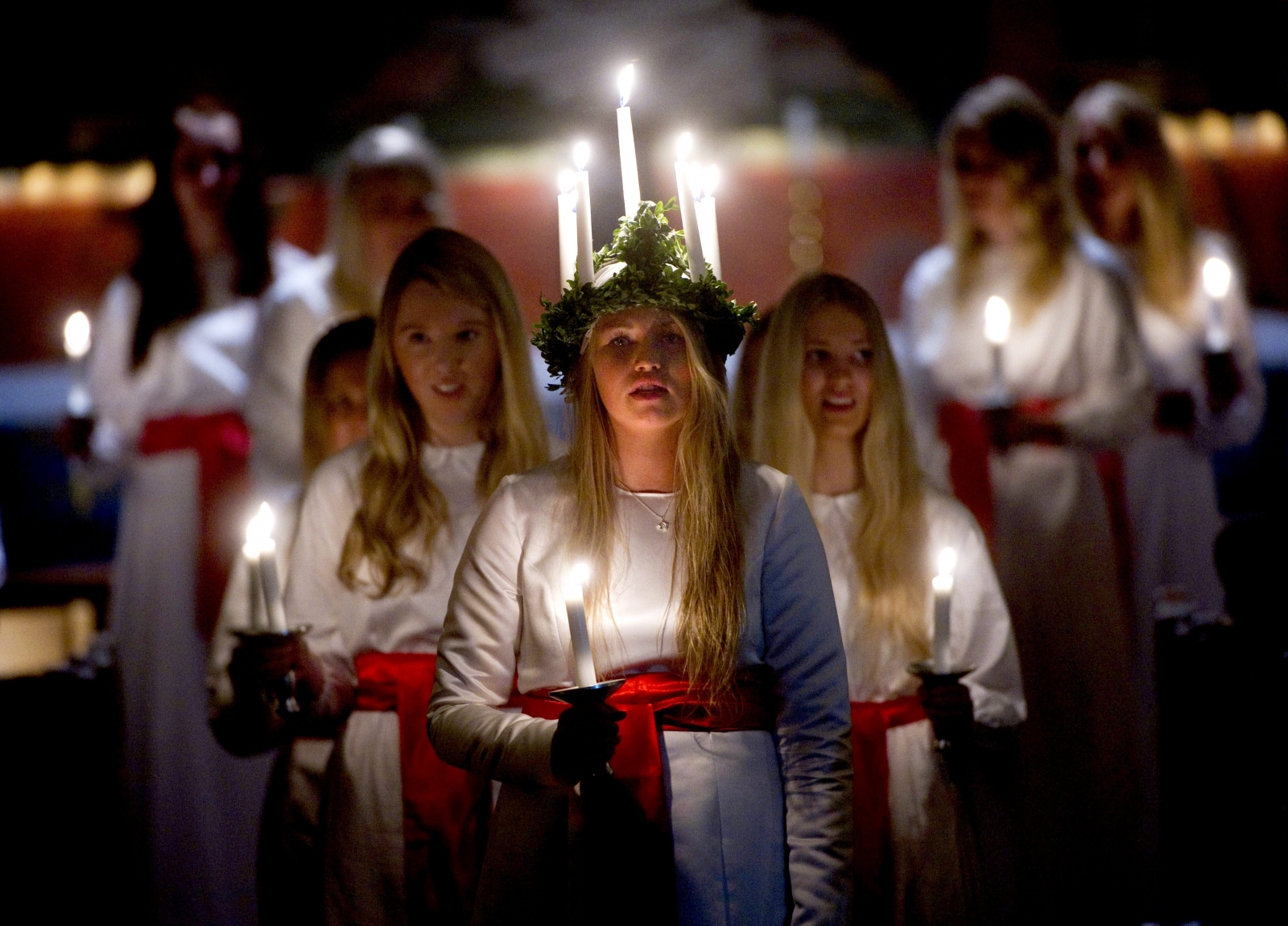Winter drawers on, as
Terry Wogan used to say on his morning radio programme. The nights
are drawing in. The days are dim, the nights are dark.
“Dark” is a
curious word. It has two different but related meanings. It can be
the mere absence of light. Nothing changes when we turn off the light
– no scary ghosts, no monsters under the bed. That's just our
imagination.
Or is it? Most
break-ins occur under cover of the night. The darkest deeds are done
in the blackness of night. Who knows who, or what, is lurking in the
shadows. We can't see what's there. And that is the second shade of
meaning of the word “dark”: unknown. Sinister connotations are
never far off. In The Lord Of The Rings we see the Dark Lord, and in
Star Wars there is the dark side of the force. How hard it must be
for a sightless person to understand.
 |  |
| Amanda Lindblom performs as Santa Lucia during the traditional Queen of Light procession Varfru church in Enkoping, SwedenGetty | The light of the world (http://scpeanutgallery.com/) |
After the Dark Ages
came the Enlightenment. We could all breathe a sigh of relief – the
lights are back on. There is a light at the end of the tunnel. As the
year turns upon the solstice we celebrate the return of the light: In
Sweden the festival of Santa Lucia (see my website for a video); in
the Jewish tradition Hanukkah; In Holland, St Martin's Day; In
Thailand, Loi Krathong; Diwali in India; and many others including
Guy Fawkes night in England, but most notably Christmas in the
Christian world. St John's Gospel says: “The light shines in the
darkness, and the darkness has not overcome it.”
Many of those brought
back from death by doctors (not just Christians) describe meeting
Jesus as a bright light: the light is Jesus and the light is love.
Perhaps somewhere deep in our hearts we know and love that light and
long to return to it. Could this be the reason why we hate the dark?
May you have a
brilliant Christmas.